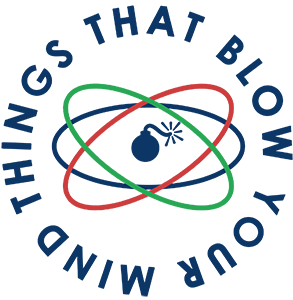The experience of guilt is complex, having both physiological and cultural components. Guilt, like shame, is experienced by your prefrontal cortex and posterior insula. Those two parts of your brain are part of the limbic system, which controls involuntary physiological processes like heartbeats, digestion, and filtering your blood. Now, there is a visceral experience of shame, where you literally feel it.[4] That comes from the posterior insula. When it comes to feeling something “in the pit of your stomach,” that comes from the posterior insula.
- Without overcoming shame and guilt, there is a high probability that addiction diagnoses will remain, that your emotions will continue to fuel your behaviours.
- Group therapies or support groups provide the opportunity of learning from the experiences of our other clients through a community support program.
- However, we can learn from our past mistakes by accepting them as mistakes and then making sincere efforts not to repeat these mistakes.
However, the part of your brain that processes moral reasoning is the prefrontal cortex. If something seems good or bad to you, it’s gone through your prefrontal cortex. Shame says, “No matter if XYZ happens, you will always be worthless.” When shame becomes part of our identity, it cripples us. If you can’t dignify yourself as a human being worthy of self-respect, a cascading set of toxic thoughts follow close behind, which could end in relapse or suicide. In ways you cannot imagine, they must navigate the wreckage of their own choices daily. And when it comes to learning from their mistakes, shame actually makes it more difficult.
Forgiveness is the key!
While there are many resources available online for developing a plan for relapse prevention, it’s essential to seek professional help when going through addiction recovery. The guidance of experienced healthcare professionals can be invaluable in ensuring the success of long-term sobriety. Managing shame and guilt during addiction recovery can be a challenging task. However, alternative therapies like Yoga and Exercise have proven to be useful tools in helping individuals cope with these emotions.
- People may need to seek treatment to abolish the various mental disorders caused by a person’s shame.
- Don’t miss out on an opportunity to decrease your negative emotions by engaging your creative talents.
- The feeling that comes after these actions is what can be classified as guilt.
- Despite these challenges, it’s essential to recognize that guilt and shame can hold you back from getting the help you need.
- Guilt and shame are the strongest and most damaging emotions we can experience.
So, let’s get started on how to implement these practices in your recovery journey. By completing these steps, you can use the role of shame and guilt in addiction recovery as a motivator, rather than fuel to the fire. Ensure you are in the right mindset for this by overcoming shame and guilt linked to an uncontrolled moment or experience. Seeing your shame for what it is will help you understand the severity of your actions.
What are the Roles of Guilt and Shame in Drug Addiction
So now, the tormented mind must battle their mental disorder plus addiction. A victim of child abuse may nurse feelings of shame their whole lives. While https://ecosoberhouse.com/ the actual abuser was someone else, the victim may feel shame for not defending themselves or for not ending the abuse properly or quickly enough.
We start clients with cognitive behavioral therapy (CBT) and other evidence-based techniques to begin the healing process. While some of the emotions that come up can be uncomfortable, we are here to help you work through them. When you enter drug or alcohol treatment in Easton PA, you’ll explore the underlying reasons for your substance use. Shame and guilt often surface, but your counselor, therapist and/or peers can help you confront these feelings. When you acknowledge your emotions and avoid escaping through drugs or alcohol, you can get to a place of healing. Along the road to recovery, you may grapple with overwhelming feelings of shame and guilt.
Accept Your Past and Yourself as a First Step to Forgive Yourself
Through mindfulness meditation, individuals can develop greater self-awareness and compassion towards themselves. This therapeutic approach can be an effective way to help individuals struggling guilt and shame in recovery with shame and guilt during addiction recovery. Dialectical Behavioral Therapy (DBT) has emerged as a promising therapeutic approach for addressing shame and guilt in addiction recovery.

Don’t miss out on the potential benefits of ACT therapy for addressing shame and guilt during addiction recovery. By learning how to observe your thoughts without judgment and focusing on your core values instead of past mistakes, you could experience a greater sense of emotional resilience and wellbeing. For those seeking support in managing feelings of shame or guilt during addiction recovery, Acceptance and Commitment Therapy (ACT) may be worth exploring further.
Understand Your Emotions and Recognize that Guilt and Shame are Counterproductive
After initiating the journey of addiction treatment, these feelings often make one think about the things they did while in active addiction. This can easily lead to relapse if left misunderstood and unheeded as one dwells on the feeling of guilt and shame. Joining a 12-step program is another powerful tool that individuals in addiction recovery can use to promote long-term sobriety. These programs provide ongoing support from peers who have gone through similar experiences and share similar goals.

Recent Comments